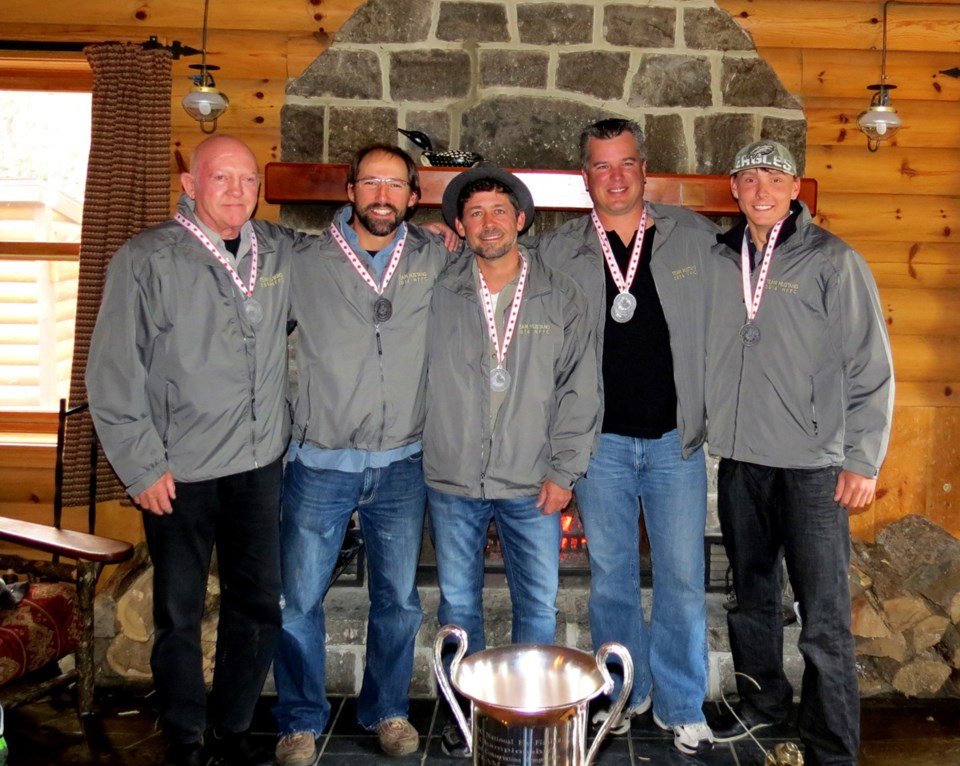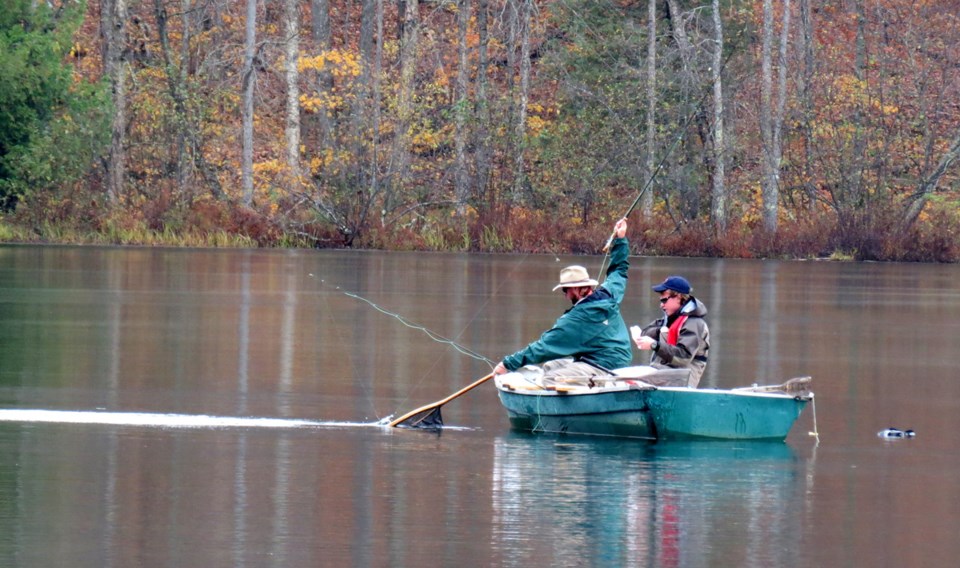In traditional Japanese, fly fishing is known literally as “from heaven.”
Winning B.C.’s second-ever medal at the Canadian National Fly Fishing Championships, and first one in nearly a decade, was almost like a gift from above for Team Mustang captain Aaron Laing of New Westminster.
“We were considered the dark horse, if you pardon the pun, but with a solid game plan and a great deal of research we were able to win against many of the local teams that included world champions and perennial favourites,” said Laing in a press release.
“I knew what was required. I put all my ideas to the team and it worked. It also didn’t hurt that we had a couple of heavy hitters.”
B.C. placed second in the team standings, while teammate Vance Whitley of Coquitlam won an individual silver medal at the 12th annual championships held at the Kenauk Nature reserve in south-eastern Quebec on Oct. 19.
The competition was held on five separate lakes inside the reserve over a six-day period. B.C. won a gold medal in 2005 in Campbell River.
Unlike the image many people have of fly fishing, of a solitary angler waist-deep in water moving in zen-like slowness with every cast of his rod, competitive angling is hard work, said the 51-year-old Laing.
“You wouldn’t believe the physical strain on the body,” he said, adding casting every minute for a three-hour stretch twice a day is not for the unprepared.
But it took more than stamina to net a silver medal for Team Mustang.
(From left: Norm Godding, Marc Bilan, captain Aaron Laing, Vance Whitley and Josh Gelinas)
Competitors are divided up between the various venues and fish against each other under equal conditions in morning and afternoon sessions.
Rankings are decided by total fish caught and length. They are also judged on how much care and attention is taken in releasing the fish.
“Ideally, you want lots of small fish. It’s a numbers game,” Laing said.
In a narrow three-hour window, decisions sometimes have to be made and quickly – Do I land the fish or not?
The team aspect comes in when team members come together between sessions and compare daily logs on the water conditions, type of flies and weighted lines used, and the productivity of each, what others were using successfully as they transition to the other venues.
“Team sport is the key,” Laing added. “You need a strong skill set from tying flies, both lake and river expertise and, above all, cooperation.”
Laing did a lot of work pre-competition, mapping out the venues and making observations on the environment.
Many of the bodies of water chosen in competitions are on less productive venues in an attempt to decrease the luck element as much as possible, among other factors.
It’s part of the fun Laing derives from the sport that only comes with the competition, he said.
“You know, you go fishing and you’re out there with your buddies and you enjoy yourself. But how do you judge how well you’re doing?” Laing said. “I was shocked at how poorly I did when I compared myself to the pros. Competition provides that benchmark. Innovation also comes from competition.”
That means making a comprehensive study of the local topography and how the weather or season has affected the lake or stream. Understanding the multi-year cycles of indigenous insects and how the fish will respond to wet, dry or streamer facimilies, the depth and turbidity of the water and surrounding temperatures are also considerations that a fisherman must consider.
“We have to know how to approach the water, how to work the fly and push it through the water,” Laing said. “We’re all absolutely nuts about fishing.”



